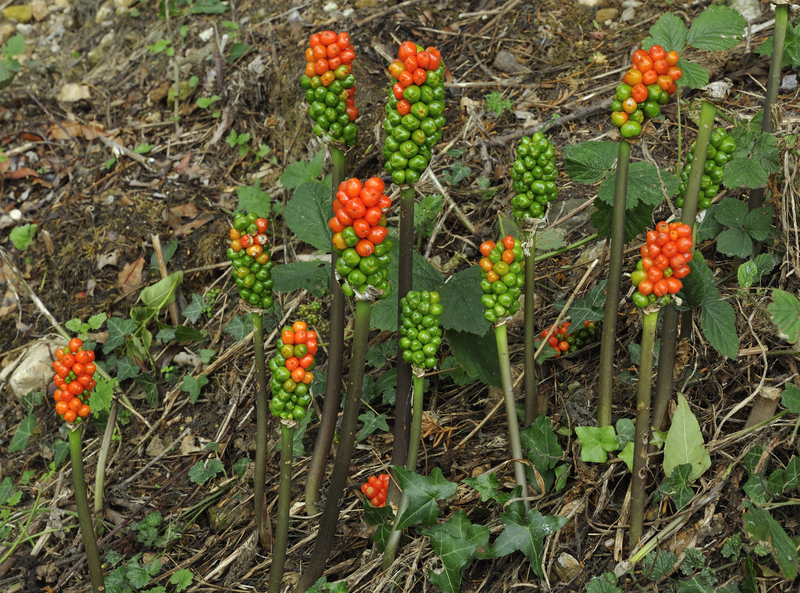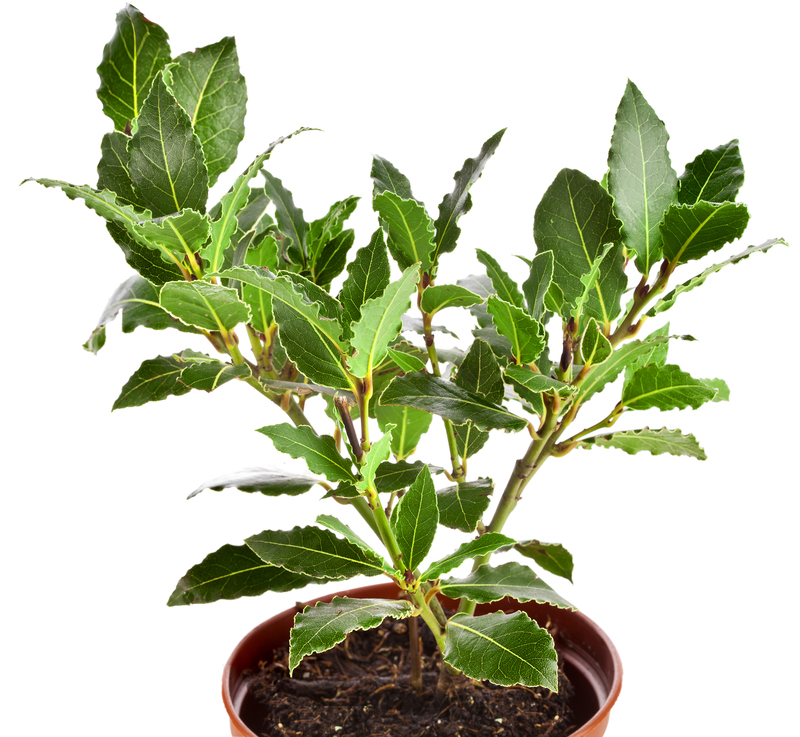Enriching Soil with Transformed Organic Debris
Posted on 09/06/2025
Enriching Soil with Transformed Organic Debris: A Comprehensive Guide
Soil is the foundation of every thriving garden and productive farm. One of the most sustainable and effective methods for improving soil health is enriching it with transformed organic debris. This process not only enhances soil fertility but also supports ecological balance and reduces environmental waste.

Understanding Organic Debris and Soil Enrichment
At its core, enriching soil with transformed organic debris involves utilizing plant and animal matter--once considered waste--to foster healthier, more nutritious soils. As organic debris decomposes, it releases vital nutrients, enhances soil structure, and encourages beneficial biological activity.
What Is Transformed Organic Debris?
Transformed organic debris refers to natural materials--such as leaves, food scraps, plant residues, and manure--that have been broken down or composted. Through biological, chemical, and physical processes, these materials become a rich, stable substance often called humus or compost.
- Composting: A controlled process of breaking down organic matter with the help of microorganisms, resulting in a fertile and stable amendment.
- Vermicomposting: The use of specific worms, such as red wigglers, to digest organic waste and produce nutrient-rich castings.
- Leaf Mold: Decomposed leaves forming a crumbly and high-quality soil conditioner.
- Decomposed Animal Manure: Livestock manure that has sufficiently broken down, minimizing pathogens and odor.
Why Transform Organic Debris for Soil Enrichment?
The benefits of using processed organic debris to enrich soil extend far beyond gardens:
- Improved Soil Structure: Enhances aeration, water retention, and drainage, helping plants thrive.
- Nutrient Cycling: Supplies nitrogen, phosphorus, potassium, and micronutrients naturally.
- Enhanced Microbial Activity: Encourages beneficial bacteria, fungi, and earthworms.
- Reduces Landfill Waste: Diverts organic materials from landfills, lowering greenhouse gas emissions.
- Suppresses Soil Diseases: Disease-suppressive microbes flourish in organic matter-rich soils.
- Chemical-Free Nutrition: Reduces reliance on synthetic fertilizers, creating safer food and a healthier ecosystem.
The Science Behind Enriching Soil with Organic Debris
The process of improving soil fertility using transformed organic matter depends on several biological and chemical mechanisms. Let's delve deeper:
Decomposition and Humification
Microorganisms such as bacteria, fungi, and actinomycetes break down organic material, a process called decomposition. As decomposition progresses, it leads to humification--the formation of humus. Humus is stable, dark organic matter that increases soil fertility, water holding capacity, and cation exchange capacity (CEC).
Nutrient Release and Soil Fertility
As organic debris decomposes, it releases nutrients gradually into the soil, providing a steady supply for plant roots. Unlike synthetic fertilizers that deliver nutrients in a fast, sometimes disruptive burst, transformed organic residues support consistent and sustainable plant growth.
Soil Life Stimulation
The introduction of transformed organic material multiplies the populations of earthworms and beneficial soil microbes. These organisms aerate the soil, decompose toxins, and combat pathogens, further enriching soil with natural organic debris.
Methods for Transforming Organic Debris Before Soil Application
To fully harness the power of soil enrichment with processed organic remains, proper transformation--or composting--techniques are essential. Below are the most effective methods:
1. Hot Composting
- Process: Create a balanced pile (ideally 3:1 ratio of carbon-rich "browns" to nitrogen-rich "greens"). Add water to maintain dampness and turn the pile regularly for oxygenation.
- Benefits: Achieves temperatures of 55-70?C, killing most weeds and pathogens. Delivers finished compost in 2-3 months.
2. Cold Composting
- Process: Pile organic debris without frequent turning or balancing. Decomposition is slower but easier for beginners.
- Benefits: Minimal labor; suitable for small-scale, low-maintenance scenarios. Takes 6-12 months.
3. Vermicomposting
- Process: Employ composting worms to convert food scraps and yard waste into rich worm castings.
- Benefits: Rapid transformation, odorless, perfect for indoor or limited spaces. The resulting worm castings are exceptionally nutrient dense.
4. Bokashi Fermentation
- Process: Anaerobic fermentation of organic waste using inoculated bran. Quick and suitable for all food wastes (even meat and dairy).
- Benefits: Produces pre-compost in 2-4 weeks that can be further composted or buried directly.
5. Sheet Composting (Lasagna Gardening)
- Process: Layer organic materials directly on garden beds and allow them to decompose in place.
- Benefits: Builds soil in-situ, reduces labor, excellent for new garden beds.
Best Practices for Using Transformed Organic Debris in Soil
Timing and Method of Application
The way you incorporate composted organic debris for soil enrichment can make a big difference:
- Spring top-dressing energizes beds for planting.
- Autumn mulching allows nutrients to seep in over winter.
- Incorporation into planting holes directly supports transplants.
Application Rates
- General Gardens: Use 1-2 inches of compost spread over the soil surface and incorporated to a 6-inch depth.
- Potted Plants: Mix compost at a 3:1 soil-to-compost ratio.
- Lawns: Top-dress with 0.5 inches annually.
Types of Organic Debris For Soil Improvement
- Vegetable Scraps (fruit peels, stems, leaves)
- Coffee Grounds and tea leaves
- Eggshells (crushed for calcium)
- Grass Clippings (avoid chemically treated lawns)
- Shredded Paper and cardboard (non-glossy)
- Livestock Manure (well-aged only)
- Woody Debris (small branches, chips--best composted with nitrogen sources)
Precautions and Things to Avoid
- Never use fresh manure on edible crops to prevent disease risk.
- Avoid weed seeds and diseased plant material unless using hot composting.
- No meats, oils, or dairy for traditional compost; use Bokashi for these items.
- Avoid invasive species and treated wood plus glossy/colored paper.
The Role of Soil Organisms in Organic Debris Transformation
Earthworms, microbes, and fungi are the unsung heroes that turn organic waste into fertile ground. Their activities:
- Physically break down debris (shredding, digesting)
- Release enzymes that liberate nutrients
- Improve soil porosity and structure
- Suppress pathogens naturally
Building a rich network of soil life is both the result and the reward of enriching soils with processed organic waste.
Ecological and Economic Benefits of Enriching Soil with Organic Matter
- Carbon Sequestration: Soils enriched with organic carbon act as carbon sinks, helping to offset climate change.
- Water Savings: Enhanced organic matter increases water retention, reducing irrigation needs.
- Pest and Disease Management: Healthy biologically active soils reduce pest outbreaks and plant diseases.
- Cost Savings: Reduced dependence on commercial fertilizers saves money and supports self-sufficiency.
Case Studies: Real-World Success with Transformed Organic Debris
Urban Gardeners
City dwellers are transforming food waste into black gold by vermicomposting in compact bins under sinks or balconies, reviving potted plants and rooftop gardens.
Market Farms
Small-scale farms enrich soils by rotating cover crops and applying high-quality hot compost, resulting in increased yields and soil health.
Parks and Green Spaces
Municipalities use leaves and grass clippings to mulch playgrounds and flowerbeds, reducing landfill costs and enhancing urban biodiversity.
Common Challenges and Solutions
- Slow Composting? Turn piles more frequently and balance carbon-nitrogen ratios.
- Odors? Avoid adding meat and dairy, cover piles, ensure adequate aeration.
- Pest Issues? Bury kitchen scraps in the pile center and use sealed bins.

Innovative Trends in Soil Enrichment with Organic Materials
- Biochar Integration: Combining compost with biochar improves both nutrient retention and carbon storage.
- Community Composting: Neighborhood groups create larger, heated piles together, managing organic debris for all members.
- Urban Waste Streams: Food co-ops and restaurants divert tons of organic waste from landfills to local farms.
Conclusion: Building Resilient Soil with Transformed Organic Debris
Enriching soil with transformed organic debris is a time-tested, environmentally responsible practice that pays dividends across gardens, farms, and entire communities. By cycling organic waste back into the soil, we close natural loops, grow healthier plants, and reduce our environmental impact. Whether you're a home gardener, urban farmer, or landscape manager, introducing composted and processed organic materials into the soil is your gateway to long-term soil fertility and ecosystem resilience.
Start Today
- Collect kitchen and yard waste separately.
- Choose a transformation technique that fits your needs.
- Apply finished organic debris consistently to your soil.
- Enjoy more vigorous plants and a healthier planet.
Enriching your soil isn't just about gardening--it's about stewardship, sustainability, and legacy. With transformed organic debris, your soil will thank you for generations to come.
Latest Posts
Vertical gardening for a lush urban escape
Turning Your Yard into a Kid-Friendly Adventure Zone
Maximize Your Gardening Success with These Key Tools



